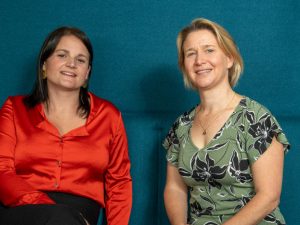
Over the past five years, the European Union (EU) has been at the forefront of establishing ‘green taxonomies’ – data dictionaries which help define which economic activities can be classified as sustainable.
The aim of this has been to offer a standardised framework for classifying ‘green’ investments to provide clarity for the financial market and redirect capital to sustainable industries.
As many countries adopt their own green taxonomies, this creates a growing need for regulators, financial markets, and academics to understand how and why sustainability regulation is so varied and contextual across the world.
Green finance is concerned with both how the financial sector integrates environmental factors in its decisions as well as the real-world impact of these decisions across corporates, cities and sovereigns.
To achieve this, the EU Commission and the German government engaged Edinburgh Innovations, the University of Edinburgh's commercialisation service, to deliver a potential solution for understanding the different approaches being taken.
This led to a consultancy opportunity to design an online global mapping tool for regulators, financial markets, and academics to understand the differences and interactions between various green taxonomies.
Catalysing the opportunity
Edinburgh Innovations facilitated this consultancy in collaboration with Dublin City University, University College Dublin, and Singapore Management University, providing an impact grant to deliver the project.
The research team was able to develop and validate an online toolkit designed to provide more transparency and facilitate dialogue around sustainability regulation across the globe.
Using this tool can empower public body stakeholders to make informed choices by comparing taxonomies, tracking progress across the globe, and learning from best practices.
It helps officials of different jurisdictions communicate and compare their respective green standards. It is also a useful resource for financial market participants and for firms that are subject to reporting under a particular taxonomy.
Leveraging a base of expertise
Leading the project was Dr Theodor Cojoianu, Associate Professor in Sustainable Finance at the University of Edinburgh Business School. Many of the other researchers were Masters students from the University’s Climate Change Finance and Investment cohort, who have previously worked on green finance initiatives in their respective countries.
I cannot sing high enough praises for Monica Dearden and the team at Edinburgh Innovations for providing the structure for this consultancy. Having the support of a funding organisation with corporate-level agility like Edinburgh Innovations has been a winning factor in bringing this project to fruition.”
– Dr Theodor Cojoianu
The project has drawn on the collective experience and wisdom of not just researchers in Dublin and Singapore, but also technical partners, including the Climate Bond Initiative, United Nations Environment Programme Finance Initiative (UNFI), and Principles for Responsible Investment.
Guidance from Edinburgh Innovations helped to grow these partnerships and allowed technical partners to support the academic mapping to make it more contextual and more robust.
This project would not have been possible without support from Edinburgh Innovations, which provided the knowledge base, governance, and operational infrastructure.
Benefits
Consultancy projects such as this are an effective way for researchers to make their expertise available to external organisations.
This is important for opening more opportunities for future research, studentships, and Knowledge Transfer Partnerships (KTPs), as well as helping the University deliver impact.
Through this green finance consultancy, Edinburgh Innovations has enabled the project researchers to raise their profile and provide their expertise to influence critical environmental policies across the world.
Looking ahead
The online mapping toolkit launched at COP30 and includes information on green finance standards from 11 nations, including the host country, Brazil.
Over the next two years, the project team hopes to include over 50 standards from across the globe, with the aim of positioning the mapping tool at the centre of the discussion around global sustainability standards, so policymakers are empowered to set more ambitious targets.
The Sustainable Finance Taxonomy Mapper
Centre for Business, Climate Change, and Sustainability
Climate and Sustainability Executive Education


